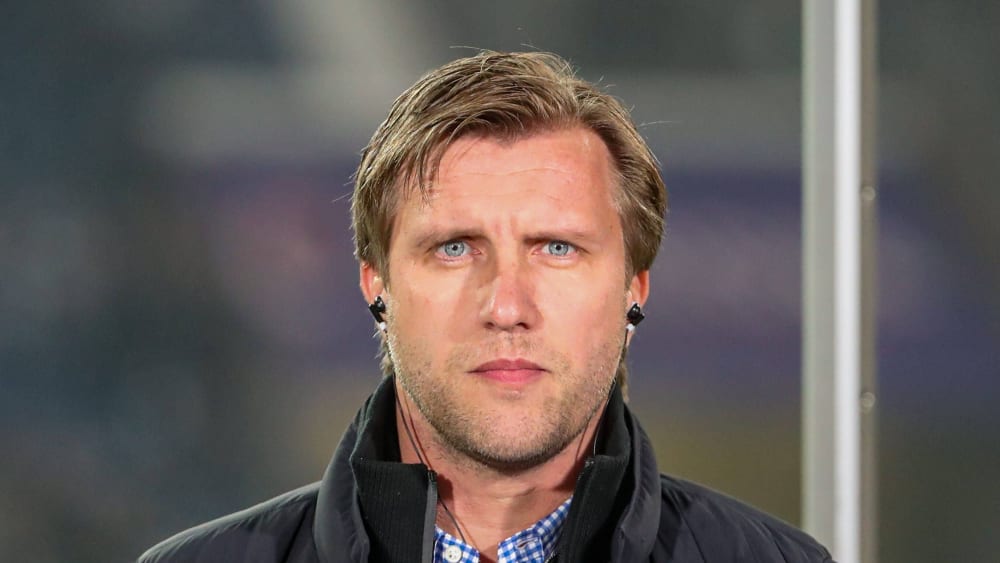The situation at Eintracht is coming to a head despite the late equaliser against Leipzig (1:1). As before in Bochum (0:2) and against Hertha BSC (1:2), the performance was not suitable for the Bundesliga. Sporting director Markus Krösche faced up to the criticism and spoke in the press room after the final whistle about…
..his assessment of the game: “We have to speak of a lucky point, especially because of Leipzig’s chances in the second half. Of course we are happy that we got a point, but not with the way we did it. Especially in the first half we didn’t act courageously enough. In the second half, too, we were very sluggish and didn’t really create any scoring chances. The boys stepped on the gas, showed passion and were rewarded. But we still have a lot of room for improvement in all areas.”
..recurring problems: “Yes, it’s like that, it’s always the same problems. We are in a process and we have to take steps forward. But above all, we have to show continuity. Against Piraeus we delivered a good game and then three days later in Bochum we played a bad game. Against Leipzig, too, it wasn’t good football-wise. It starts with the build-up, we are too slow. Especially in the central area, we are often looking for a solution at the back, and up front, we’re too sluggish when we create situations. To be honest, we don’t really get the interplay right yet. That’s why we don’t create many goal chances, we have to work on that.”
..Possible solutions: “Especially when playing forward, the coordination is not yet right between the running path and the passing path, we are too imprecise. We’re also not good in terms of passing sharpness and timing. We have to work on that. Of course, that’s easier if you can train, but we can’t do that. That’s not an excuse, it’s a fact (because of the English weeks, editor’s note). That’s why we have to see that we work things out via videos and the games. I know it’s always the same, but it’s the same problems. We have to see that we make progress even under the double burden.”
..the role of the leading players: “It is a team problem that cannot be pinned down to individual players. We are not that stable as a team yet, we have to work on that. It would be a bit easier for the new players if we were stable as a team. But that’s not the case at the moment. Even with the experienced players, we see a lot of fluctuations in performance. You can’t deny anyone’s commitment and passion, but we have to try to get more stability as a team – also through the guys with more experience. We have room for improvement there.”
..the duration of the problems: “When new coaches come with a slightly different idea of the game, it takes a while. It’s easier to implement new things if you can train regularly. If you have to do it by video, it’s more difficult and takes longer. We have to see that we implement things in the games. But this process takes longer with the double load. Still, of course we are not happy with the way we are playing and the points we are scoring. We are not making enough progress at the moment.”
..on the idea of the game still not being clear: “We want to have footballing solutions with the ball, that’s clear, and that has something to do with automatisms. Of course we want to play sensible football, attack the opponent high and have good ball wins in the opponent’s half. When we attack, we do it well at times. But it wasn’t good against Leipzig because we were too passive. As a rule, we won the ball a lot. But in those situations we found bad solutions and lost the ball, so we had to invest a lot to win the ball back. The basic idea is, of course, to put the opponent under pressure early on, to win the ball well and to create transition moments. That’s more difficult when you’re behind and the opponent is deeper. What happens? You have no spaces. If you then have to play football against an orderly opponent, it’s more complicated than if you catch the opponent disorderly. For example, when we took the lead against Piraeus, spaces opened up. We have to work on doing things better after winning the ball – we have to work on automatisms, running routes and passing accuracy. “





